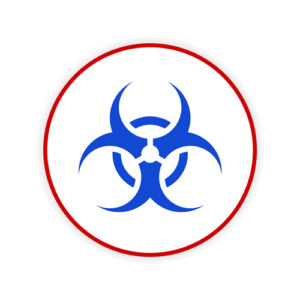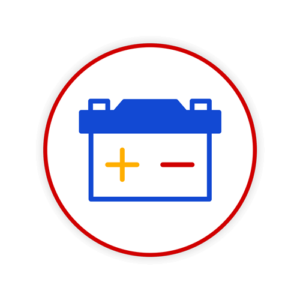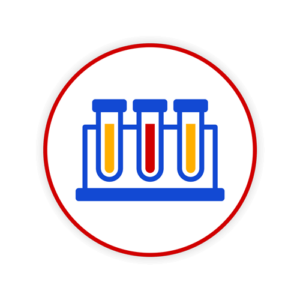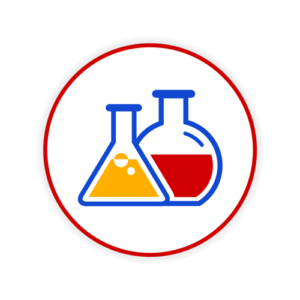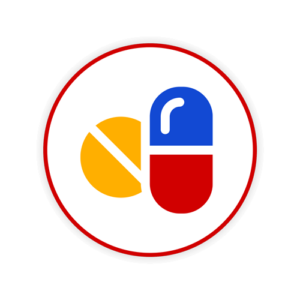
No More Waiting
We pride ourselves on our exceptional customer service, quick responses and fast turnaround, from your initial quote to your service date.

No More Guessing
You’ll have access to our team of experts to support you with identifying, packaging, and labelling complex waste types.

No More Wondering
You’ll have traceability of your waste with all of your data in one place, ensuring compliance from generation to disposal.
Hazport: Your Trusted Partner for Chemical Waste Disposal
As a leading provider of chemical waste services since 2006, we’ve established a strong reputation for reliability, compliance and expert solutions. Our experienced team and modern fleet ensure safe and efficient transportation and disposal of chemical waste across the UK.
We adopt a collaborative approach with our customers, leveraging the expertise of our waste experts in chemical waste identification and packaging prior to disposal.
From small businesses to large corporations, we offer comprehensive services tailored to your specific needs. Our expertise includes:
- Waste assessment and classification
- Lab packing and waste packaging
- Safe collection and transportation
- Proper disposal and recycling
- Regulatory compliance guidance
We dispose of the following waste types:
![]() Used and unused chemicals
Used and unused chemicals
![]() Chemical waste recycling and lab packs
Chemical waste recycling and lab packs
![]() Chemicals including acids/alkalis
Chemicals including acids/alkalis
![]() Cleaning agents
Cleaning agents
![]() Brake fluids, solvents and paints
Brake fluids, solvents and paints
![]() Acid and caustic soda waste
Acid and caustic soda waste
![]() Acetone, glycol, ammonia, and cyanide disposal
Acetone, glycol, ammonia, and cyanide disposal
![]() Flammable liquids
Flammable liquids
![]() Pesticides, herbicides, and biocides
Pesticides, herbicides, and biocides
![]() And more!
And more!
Hazardous Waste Collection by Waste Stream
We provide cost-effective waste management, transportation, and disposal services for hazardous waste types including:
We can also collect your non-hazardous business waste.
Don’t see your waste listed? Get in touch to see how we can help.
How to Dispose of Chemical Waste
It’s crucial to dispose of chemical waste responsibly and compliantly to protect ourselves and our environment.
Classify your waste : Once classified, chemical waste containers must be clearly labelled with the chemical’s name, concentration, hazard symbols and any relevant safety information.
Separate and store safely : Different chemicals need separate containers. Segregate incompatible chemicals and store them separately to prevent chemical reactions and maintain an accurate inventory of all chemical on-site.
Ensure that your storage area is adequately designed to prevent accidents and spills. Consider factors such as ventilation, lighting, and accessibility.
Arrange authorised collection : Ensure the waste carrier you use is reputable and registered for the collection, transportation, and disposal of chemical waste.
Be prepared for emergencies : Conduct regular inspections and develop emergency procedures and have a response plan in place to address spills, leaks or accidents involving chemical waste.
Seek professional advice and guidance : If you’re unsure about how to dispose of a particular type of chemical waste or what type of chemicals you have, consult with a chemical waste expert.
Fill in a hazardous waste consignment note : Fill in the appropriate parts of a hazardous waste consignment note and give it to the waste carrier – it must accompany the waste until disposal or recycling.
Chemical Waste Management, Simplified
When it comes to chemical waste disposal, you need someone you can rely on to handle the job efficiently and in compliance with legislation.
Step 2 – You Receive Your Quote
Step 3 – We Collect Your Waste
What Our Clients Say About Us...
Looking for Hazardous Waste Support?
When you choose Hazport, you choose compliance. Your waste is handled the right way and it’s traceable.
From waste identification through to disposal, we’re here to support you at every step to ensure a hassle-free experience.

FAQs about Hazardous Waste Disposal
A variety of chemical waste can be either hazardous or non-hazardous. It can exist in various forms – solid, liquid, or gaseous – and may pose risks to human and environmental health.
Chemical waste is any waste product that contains or was in contact with dangerous chemicals. It can be a solid, liquid, or gaseous material that may pose a hazard to human or environmental health.
There are many types of chemical waste, some of which you may not expect to be classified as such. Common chemical wastes include:
- Batteries
- Chemical containers or packaging
- Cleaning products, e.g. detergents, disinfectants, and sprays
- Fluorescent light bulbs – argon, xenon, neon, and mercury vapour
- Paints, e.g. emulsion, gloss, primer, etc
- Printer toner and ink cartridges
- Pesticides – insecticides, fungicides, herbicides, and biocides
- Solvents – acetone, ethanol, methanol
In the past, companies used to send chemical waste to landfills, risking leaks into the surrounding ground or water and causing pollution. Fortunately, there are alternative methods available for chemical waste disposal, depending on the type of chemicals involved.
These disposal methods include:
- Reclamation: This involves removing and recycling chemical waste products like mercury from items such as broken thermometers.
- Dewatering: This method is suitable for oil waste, separating the oil from water for proper disposal.
- Filtering and distilling: Filtering eliminates additives or inorganic materials, whilst distilling refines oil through boiling. Both processes enable the reuse of oil in some capacity.
- Chemical treatments: Certain types of chemical waste, such as sulphuric or hydrochloric acids can be repurposed after undergoing specific chemical treatments.
- Thermal treatments: Applying heat helps sanitise waste products, ensuring the safe and secure disposal of chemical waste.


